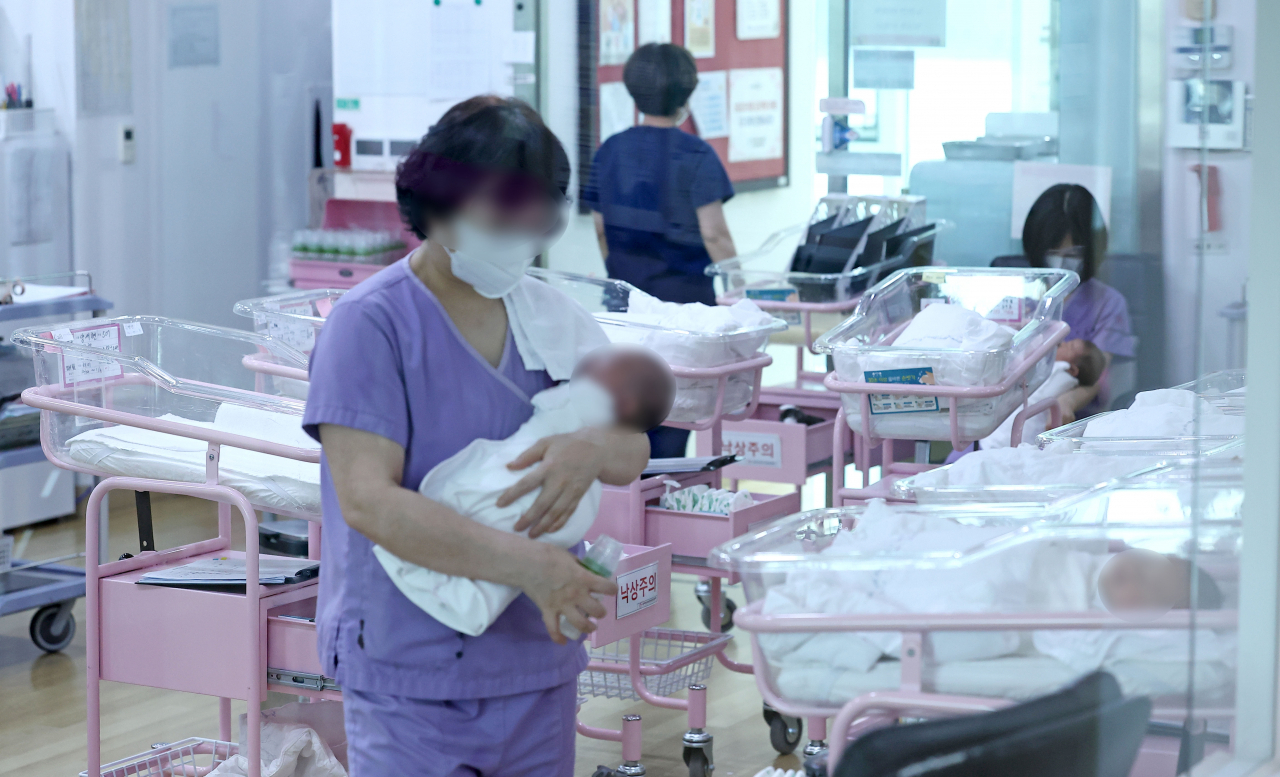 |
An employee at a postpartum care center in Seoul holds a newborn baby in this file photo. (Yonhap) |
Every district in Seoul except Gangnam had fewer childbirths in 2023 than the year before, recent data from the Ministry of Interior and Safety showed.
Of the 25 district offices in the South Korean capital, only Gangnam recorded an increase in the number of childbirths, by 13.53 percent, for last year. All other districts had fewer newborn babies than in 2022, with five districts marking double-digit drops.
The districts of Eunpyeong-gu, Jongno-gu, Gangdong-gu, Yangcheon-gu and Seongdong-gu recorded drops of 17.23 percent, 15.38 percent, 13.67 percent, 13.38 percent and 13.28 percent, respectively.
An earlier ministry report showed 234,039 births in South Korea in 2023, marking its lowest recorded figure.
In the Greater Seoul region -- including Seoul, Incheon and Gyeonggi Province -- 89 percent of local governments showed declines in the number of newborn babies. About 75 percent of local governments outside of Greater Seoul reported a drop in newborns, including the nation's second-biggest city Busan.
Like Seoul, all but one of the Busan's district offices reported a drop in births
South Korea currently has the lowest total birth rate -- the number of babies a woman is expected to have in her lifetime -- in the world, which was 0.78 in 2022 and is expected to fall further to 0.65 for 2023. This has led to predictions of a rapid population decline, with Statistics Korea projecting nearly a 30 percent drop by 2072.
A January report showed that there are 6.31 million people in the country aged 70 or older, surpassing the population in their 20s -- 6.19 million -- for the first time in Korea's recorded history.







